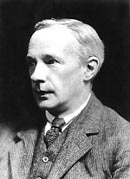The following is a scenario in an imaginary world:
A seller is selling all the diamond rings in the world, and the world consists of him and ten other people. All ten potential buyers would like diamond rings, but every time a diamond ring is offered for sale and everyone makes an offer to buy a ring, two of those ten people offer more. This results in a bidding war until the other eight people can no longer afford to buy the ring. Consequently, all the diamond rings go to just two people.
But at the end of the day, these are diamond rings. Who really cares? They could never be considered essential for living the good life.
Also in this world: A seller is selling all the food in the world. In advance, we will rule out “but you can produce enough food for yourself without the seller,” by declaring, as part of the thought experiment, that this would require so much time that people could not work for a living, and it would in many cases require resources (such as suitable land) that people do not have. So this is ruled out.


 In the “nuts and bolts” series, I explain and discuss some of the fundamental ideas in philosophy (and theology sometimes) that are taken for granted within the discipline, but which might not be very well known to ordinary human beings. This time the subject is ethical intuitionism (or moral intuitionism).
In the “nuts and bolts” series, I explain and discuss some of the fundamental ideas in philosophy (and theology sometimes) that are taken for granted within the discipline, but which might not be very well known to ordinary human beings. This time the subject is ethical intuitionism (or moral intuitionism).